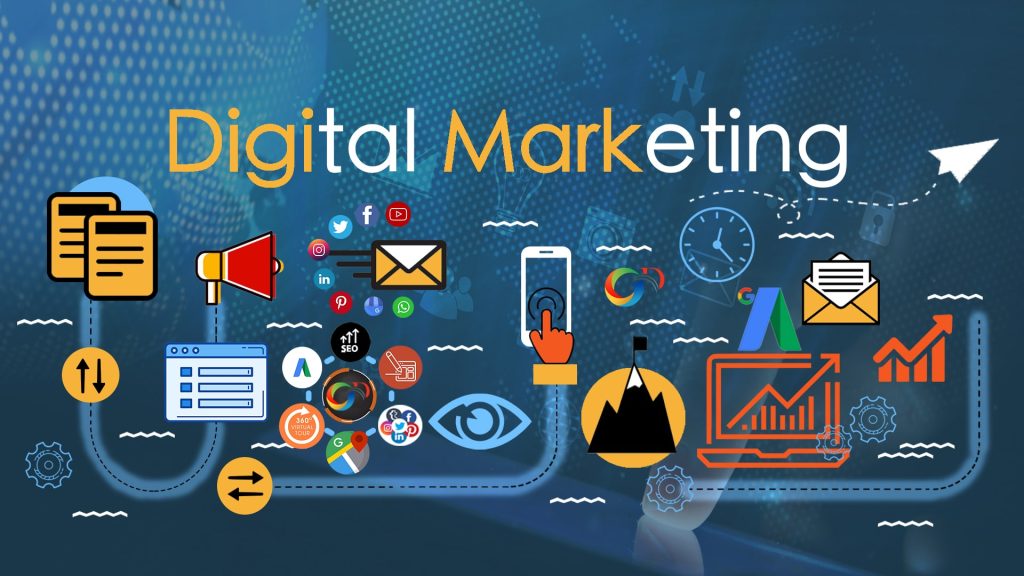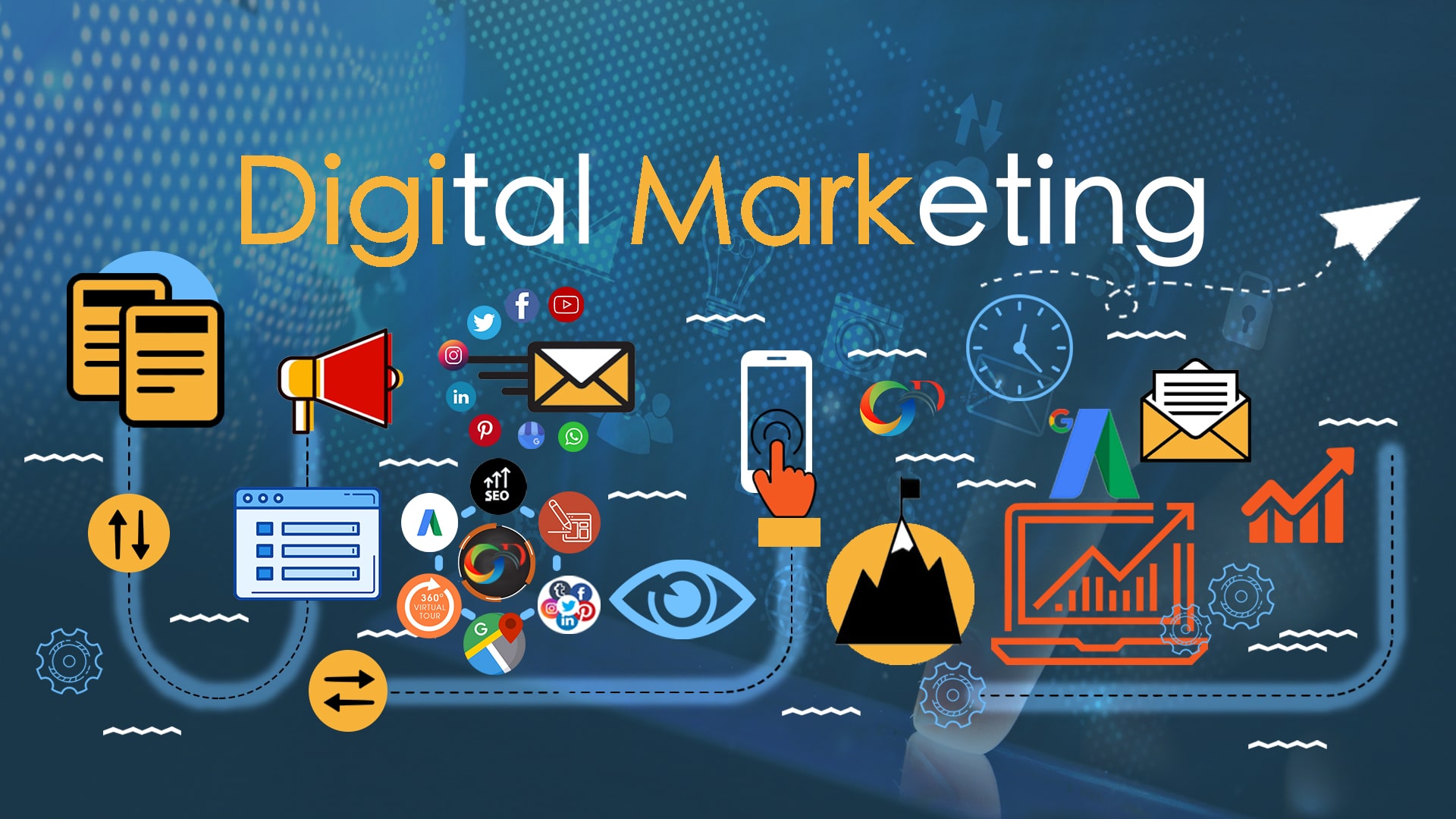Digital marketing refers to the use of digital channels, such as the internet, social media, email, search engines, and mobile devices, to promote products or services. It is an umbrella term that encompasses various strategies and techniques aimed at reaching and engaging a target audience online. Some examples of digital marketing include search engine optimization (SEO), pay-per-click (PPC) advertising via google ads, social media marketing, email marketing, content marketing, and influencer marketing. Digital marketing allows businesses to connect with their target audience in a cost-effective and personalized manner, and it also provides measurable results and data that can be used to improve and refine marketing strategies. With the increasing use of technology and the internet, digital marketing has become an essential part of any successful marketing campaign.
Best Digital Marketing Agency In Nepal.

It is a broad term used to describe various strategies and techniques used to promote products or services through digital channels. It encompasses a wide range of tactics, including search engine optimization (SEO), social media marketing, email marketing, content marketing, pay-per-click (PPC) advertising, and more.
One of the main advantages of digital marketing is its ability to reach a global audience. With the rise of technology and the internet, businesses are no longer limited to their local markets. It allows companies to expand their reach and target potential customers in different regions and countries.
Another benefit of digital marketing is its cost-effectiveness. Traditional marketing methods, such as print ads, TV commercials, and billboards, can be expensive and may not be feasible for small businesses with limited budgets. In contrast, digital marketing offers various cost-effective options, such as social media marketing and email campaigns, that can be tailored to fit any budget.
Moreover, It provides a measurable way to track the success of marketing campaigns. With the help of various analytics tools, businesses can monitor their website traffic, conversions, and engagement rates to gain valuable insights into their audience’s behavior and preferences. This data can then be used to optimize future marketing efforts and improve overall ROI.
One of the key components of digital marketing is SEO, which involves optimizing a website’s content and structure to rank higher in search engine results. By appearing on the first page of search results, businesses can increase their online visibility and attract more organic traffic to their website. This, in turn, can lead to more leads and conversions.
Social media marketing is another crucial aspect of digital marketing. With billions of people actively using social media platforms, businesses can leverage these channels to connect with their target audience, build brand awareness, and drive website traffic. Social media also allows for targeted advertising, where businesses can reach specific demographics, interests, and behaviors to maximize their reach and ROI.
Email marketing is another effective digital marketing tactic, especially for businesses looking to nurture leads and retain customers. By sending personalized and relevant emails to subscribers, businesses can build relationships with their audience and keep them engaged with their brand.
In recent years, the rise of mobile devices has also made mobile marketing an essential part of digital marketing. With the majority of internet users accessing the web through their smartphones, businesses must optimize their websites for mobile devices and utilize mobile-specific marketing strategies, such as SMS marketing and mobile apps.
In conclusion, Marketing digitally has become an integral part of modern businesses’ marketing strategies. Its ability to reach a global audience, cost-effectiveness, measurable results, and various tactics make it a powerful tool for businesses to promote their products or services and achieve their marketing goals. With the continuous advancements in technology, digital marketing will continue to evolve and play a crucial role in the success of businesses in the digital age.
For more blogs: http://www.kbkdigitals.com




